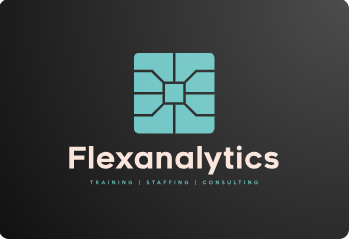Power BI
Module 1: Introduction to Power BI
This module introduces learners to the concept of Business Intelligence (BI) and the significance of data-driven decision-making in organizations. Participants will explore Power BI as a robust tool for data visualization and analysis, familiarizing themselves with its core components: Power BI Desktop, Power BI Service, and Power BI Mobile.The installation and setup process is also covered, ensuring that users can get started with the software effectively. By the end of this module, learners will understand how Power BI fits into the larger BI ecosystem and the advantages it offers for transforming raw data into actionable insights.
Module 2: Getting Started with Power BI Desktop
In this module, learners dive into Power BI Desktop, the primary interface for creating reports and dashboards. They will navigate the user-friendly environment, exploring various features and functionalities. The focus will be on importing data from multiple sources, such as Excel, SQL databases, and online services. Understanding data types and structures is crucial at this stage, as it lays the foundation for effective data modeling and visualization. By the end of the module, participants will be comfortable working within Power BI Desktop and ready to start transforming their data into meaningful insights.
Module 3: Data Transformation and Cleaning
Data transformation and cleaning are vital steps in preparing data for analysis. This module introduces the Power Query Editor, a powerful tool for data manipulation. Learners will learn techniques to clean data, such as removing duplicates and handling missing values, which enhance data quality. The module also covers merging and appending datasets to create a comprehensive view. Participants will explore how to create custom columns and calculated fields to enrich their data further. By mastering these techniques, learners will ensure that their data is reliable and ready for in-depth analysis and visualization.
Module 4: Data Modeling
Data modeling is essential for organizing and relating data effectively. In this module, learners will create relationships between tables, understanding concepts like star schema and snowflake schema. This foundational knowledge ensures that participants can structure their data optimally for analysis. The module introduces DAX (Data Analysis Expressions), a powerful formula language for creating calculated columns and measures. Participants will learn how to implement DAX for advanced calculations and analytics, enhancing their ability to derive insights from data. By the end of this module, learners will have the skills to build a robust data model, ready for visualization.
Module 5: Data Visualization
Effective data visualization is key to communicating insights clearly. This module covers various visualization types, teaching learners when and how to use them effectively. Participants will create and customize charts, tables, maps, and other visual elements to represent data compellingly. The module emphasizes designing interactive dashboards that allow users to explore data dynamically. Learners will also understand the importance of using slicers and filters, which enable viewers to drill down into specific data segments. By the end of this module, participants will be equipped to create visually engaging reports that convey their data’s story effectively.
Module 6: Advanced Analytics
This module delves into advanced analytics capabilities within Power BI, empowering users to perform complex analyses. Participants will deepen their understanding of DAX by exploring advanced calculations, including aggregations and conditional statements. Time intelligence functions will be introduced, allowing learners to perform date-based calculations and analyses, which are essential for business reporting.The module also covers the implementation of what-if parameters, enabling users to simulate different scenarios and analyze potential outcomes. By mastering these advanced techniques, learners will be able to derive deeper insights and support strategic decision-making within their organizations.
Module 7: Real-World Applications and Case Studies
In this practical module, learners will explore real-world applications of Power BI across various industries. Participants will analyze case studies to understand how organizations leverage Power BI for business intelligence and data visualization. Hands-on projects will allow learners to apply their knowledge to actual datasets, creating meaningful reports and dashboards.This practical experience is crucial for reinforcing theoretical concepts learned in previous modules. By the end of this module, participants will be equipped to tackle real business challenges using Power BI, enhancing their readiness for roles in data analysis and business intelligence.

